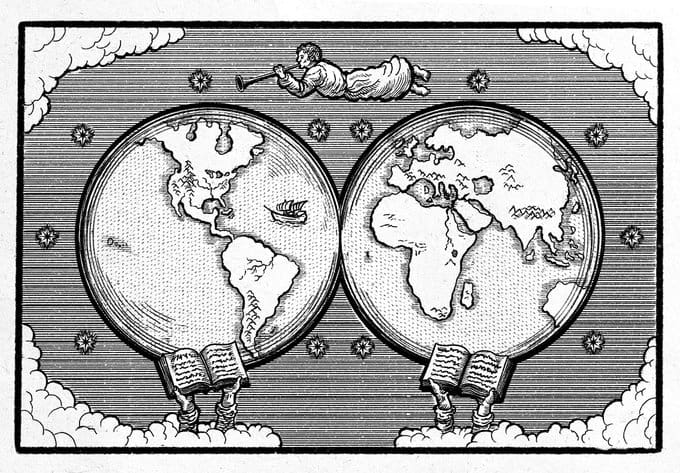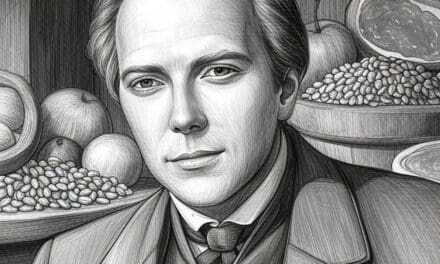Modern Christianity Has Way More in Common with Muhammad, Islam, and the Qur’an Than Joseph Smith, Mormonism, and The Book of Mormon Ever Have—or Ever Will
As a member of The Church of Jesus Christ of Latter-day Saints—often called a Mormon—I’ve frequently encountered a perplexing comparison from Evangelical Christians: they liken our first prophet, Joseph Smith, and The Book of Mormon to the Muslim prophet Muhammad and the Qur’an. On the surface, it’s an easy jab—both involve a new figure and a new text. But dig a little deeper, and this comparison falls apart. In fact, I see far more in common between modern Evangelical or Protestant Christianity and Muhammad’s Islam than I ever will between their traditions and my faith. From their shared belief in a closed canon to their rejection of ongoing revelation, modern Christianity mirrors Muhammad’s context in ways that starkly contrast with the restoration led by Joseph Smith—a restoration that echoes the experiences of biblical prophets like Moses and Paul, not the innovations of Muhammad. Let’s explore why.
The Closed Canon: A Shared Cornerstone
One of the most striking parallels between modern Evangelical Christianity and Islam is their insistence that God’s revelation to humanity is finished. Evangelicals hold that the Bible—compiled centuries after Christ’s ministry—is the final, complete word of God. No new scriptures, no new prophets, no new divine messages. Similarly, Muhammad presented the Qur’an as the ultimate revelation, a text dictated to him by the angel Gabriel that superseded and sealed all prior scriptures. For both, the canon is closed, and God’s voice has gone silent.
In contrast, The Church of Jesus Christ of Latter-day Saints teaches an open canon, just as the people of the Old and New Testaments experienced. From Moses receiving the Law on Mount Sinai to John writing the Revelation on Patmos, biblical history is a story of God speaking anew to His people through prophets. We believe God continues that pattern today. Joseph Smith didn’t claim to write a final word; he translated The Book of Mormon—an ancient record from prophets in the Americas—as evidence of his calling and a testament that God still reveals His will. Our faith embraces ongoing revelation, additional scripture (like the Doctrine and Covenants), and living prophets, aligning us with the dynamic faith of biblical times, not the static finality of Evangelicalism or Islam.
The Prophet’s Role: Restoration vs. Reformation
Joseph Smith’s mission wasn’t to invent a new religion but to restore the original Church of Jesus Christ, lost after the death of the apostles in what we call the Great Apostasy—a “falling away” foretold in the Bible (2 Thessalonians 2:3). His First Vision, where he saw God the Father and Jesus Christ, recalls Moses speaking with God “face to face, as a man speaketh unto his friend” (Exodus 33:11) or Paul’s blinding encounter with Christ (Acts 9:3-6). The Book of Mormon, delivered by the angel Moroni, wasn’t his creation but an ancient record he translated by divine power, reinforcing his role as a restorer, not an author.Muhammad, however, founded Islam as a new faith, claiming the Qur’an as a fresh revelation to correct and replace Judaism and Christianity. Likewise, modern Protestant Christianity emerged from the Reformation, with figures like Martin Luther and John Calvin breaking from Catholicism to establish new denominations based on their own interpretations of the Bible. Both Muhammad and Protestant leaders were innovators, building new religious systems rather than restoring a divinely established original. Their efforts parallel each other far more than either resembles Joseph Smith’s claim to revive Christ’s ancient church with its priesthood authority and ordinances intact.
Jesus Christ: Affirmed or Redefined?
Perhaps the most glaring difference lies in how Jesus Christ is viewed. Joseph Smith affirmed Christ’s divinity as the literal Son of God and Savior of the world. The Book of Mormon, far from denying Jesus, declares Him the center of God’s plan, with ancient prophets like Nephi testifying, “We talk of Christ, we rejoice in Christ” (2 Nephi 25:26). Every revelation Joseph received reinforced Christ’s divine role, aligning with the New Testament witness.Muhammad, by contrast, denied Christ’s divinity, teaching that Jesus was merely a human prophet, not the Son of God or the world’s Redeemer. Modern Christianity, while affirming Christ’s divinity, shares a subtle kinship with Islam by rejecting the idea that He continues to lead His church through living prophets. Evangelicals insist that divine guidance ended with the apostles, leaving the Bible as the sole authority—a position that echoes Islam’s claim that the Qur’an is the last word. The LDS faith, however, holds that Christ remains an active, living presence, speaking through prophets like Joseph Smith, just as He did in biblical times.
Scripture’s Origin: Discovery vs. Dictation
The way scripture came to be in each tradition further highlights the divide. The Book of Mormon wasn’t Joseph Smith’s composition; it was an ancient text engraved on golden plates, preserved by God and revealed to Joseph through divine means. His role was to translate it, much like Moses received the stone tablets or John recorded visions from an angel (Revelation 1:1). This pattern of uncovering divinely preserved truths sets the LDS restoration apart.Muhammad, on the other hand, dictated the Qur’an as a new work, claiming it was revealed to him incrementally by Gabriel. He positioned it as the final, authoritative text, superseding all that came before. Protestant Christianity, while not producing new scripture, relies heavily on human interpretation of the Bible to define doctrine—think of creeds like the Nicene or Westminster Confessions, crafted by councils and scholars long after the apostles. Both Islam and Evangelicalism reflect a human-centric approach to scripture, whether through dictation or reinterpretation, while Joseph Smith’s experience points to a divine rediscovery of what was lost.
The Church’s Purpose: Continuity vs. New Beginnings
The LDS Church claims continuity with the biblical church, restoring priesthood authority, ordinances like baptism by immersion, and a structure led by prophets and apostles (Ephesians 2:20). Joseph Smith’s work fulfills promises of renewal, such as “the times of restitution of all things” (Acts 3:21). This is a far cry from starting anew.Muhammad established Islam as a distinct religion, breaking from prior traditions to create a new community under his leadership. Similarly, Protestant Christianity birthed countless denominations—Lutherans, Baptists, Methodists—each a new beginning rooted in disagreement over doctrine or practice. Both represent departures from an original, divinely guided church, while the LDS faith seeks to reclaim it.
Additional Parallels: Authority and Tradition
Beyond your points, consider how both Evangelical Christianity and Islam elevate secondary authorities. Evangelicals rely on sola scriptura (“scripture alone”), a man-made principle from the Reformation, while Islam leans on the Hadith—traditions of Muhammad—to supplement the Qur’an. In both, human tradition fills the void left by the absence of living prophets. The LDS Church, however, claims direct divine authority through the priesthood, restored by heavenly messengers like John the Baptist and Peter, James, and John to Joseph Smith—a continuity with biblical precedent, not a reliance on post-apostolic innovation.
Conclusion: A Misplaced Comparison
When Evangelical Christians compare Joseph Smith to Muhammad, they miss the deeper truth: their own tradition shares far more with Islam’s founder than ours ever will. A closed canon, a silent God, a redefined church—these hallmarks unite modern Christianity and Muhammad’s Islam in ways that stand in stark opposition to the LDS restoration. Joseph Smith’s prophetic calling, rooted in visions of God, the translation of ancient scripture, and the renewal of Christ’s church, aligns with the vibrant faith of Moses, Paul, and other biblical figures. The Book of Mormon isn’t a rival to the Bible but a companion, testifying that God’s voice still rings out. To equate our faith with Muhammad’s is to overlook these profound differences—and to ignore the surprising kinship between Evangelicalism and Islam. The restoration isn’t a new beginning; it’s a return to what once was, and what God always intended.
As a member of The Church of Jesus Christ of Latter-day Saints—often called a Mormon—I’ve frequently encountered a perplexing comparison from Evangelical Christians: they liken our first prophet, Joseph Smith, and The Book of Mormon to the Muslim prophet Muhammad and the Qur’an. On the surface, it’s an easy jab—both involve a new figure and a new text. But dig a little deeper, and this comparison falls apart. In fact, I see far more in common between modern Evangelical or Protestant Christianity and Muhammad’s Islam than I ever will between their traditions and my faith. From their shared belief in a closed canon to their rejection of ongoing revelation, modern Christianity mirrors Muhammad’s context in ways that starkly contrast with the restoration led by Joseph Smith—a restoration that echoes the experiences of biblical prophets like Moses and Paul, not the innovations of Muhammad. Let’s explore why.
The Closed Canon: A Shared Cornerstone
One of the most striking parallels between modern Evangelical Christianity and Islam is their insistence that God’s revelation to humanity is finished. Evangelicals hold that the Bible—compiled centuries after Christ’s ministry—is the final, complete word of God. No new scriptures, no new prophets, no new divine messages. Similarly, Muhammad presented the Qur’an as the ultimate revelation, a text dictated to him by the angel Gabriel that superseded and sealed all prior scriptures. For both, the canon is closed, and God’s voice has gone silent.
In contrast, The Church of Jesus Christ of Latter-day Saints teaches an open canon, just as the people of the Old and New Testaments experienced. From Moses receiving the Law on Mount Sinai to John writing the Revelation on Patmos, biblical history is a story of God speaking anew to His people through prophets. We believe God continues that pattern today. Joseph Smith didn’t claim to write a final word; he translated The Book of Mormon—an ancient record from prophets in the Americas—as evidence of his calling and a testament that God still reveals His will. Our faith embraces ongoing revelation, additional scripture (like the Doctrine and Covenants), and living prophets, aligning us with the dynamic faith of biblical times, not the static finality of Evangelicalism or Islam.
The Prophet’s Role: Restoration vs. Reformation
Joseph Smith’s mission wasn’t to invent a new religion but to restore the original Church of Jesus Christ, lost after the death of the apostles in what we call the Great Apostasy—a “falling away” foretold in the Bible (2 Thessalonians 2:3). His First Vision, where he saw God the Father and Jesus Christ, recalls Moses speaking with God “face to face, as a man speaketh unto his friend” (Exodus 33:11) or Paul’s blinding encounter with Christ (Acts 9:3-6). The Book of Mormon, delivered by the angel Moroni, wasn’t his creation but an ancient record he translated by divine power, reinforcing his role as a restorer, not an author.Muhammad, however, founded Islam as a new faith, claiming the Qur’an as a fresh revelation to correct and replace Judaism and Christianity. Likewise, modern Protestant Christianity emerged from the Reformation, with figures like Martin Luther and John Calvin breaking from Catholicism to establish new denominations based on their own interpretations of the Bible. Both Muhammad and Protestant leaders were innovators, building new religious systems rather than restoring a divinely established original. Their efforts parallel each other far more than either resembles Joseph Smith’s claim to revive Christ’s ancient church with its priesthood authority and ordinances intact.
Jesus Christ: Affirmed or Redefined?
Perhaps the most glaring difference lies in how Jesus Christ is viewed. Joseph Smith affirmed Christ’s divinity as the literal Son of God and Savior of the world. The Book of Mormon, far from denying Jesus, declares Him the center of God’s plan, with ancient prophets like Nephi testifying, “We talk of Christ, we rejoice in Christ” (2 Nephi 25:26). Every revelation Joseph received reinforced Christ’s divine role, aligning with the New Testament witness.Muhammad, by contrast, denied Christ’s divinity, teaching that Jesus was merely a human prophet, not the Son of God or the world’s Redeemer. Modern Christianity, while affirming Christ’s divinity, shares a subtle kinship with Islam by rejecting the idea that He continues to lead His church through living prophets. Evangelicals insist that divine guidance ended with the apostles, leaving the Bible as the sole authority—a position that echoes Islam’s claim that the Qur’an is the last word. The LDS faith, however, holds that Christ remains an active, living presence, speaking through prophets like Joseph Smith, just as He did in biblical times.
Scripture’s Origin: Discovery vs. Dictation
The way scripture came to be in each tradition further highlights the divide. The Book of Mormon wasn’t Joseph Smith’s composition; it was an ancient text engraved on golden plates, preserved by God and revealed to Joseph through divine means. His role was to translate it, much like Moses received the stone tablets or John recorded visions from an angel (Revelation 1:1). This pattern of uncovering divinely preserved truths sets the LDS restoration apart.Muhammad, on the other hand, dictated the Qur’an as a new work, claiming it was revealed to him incrementally by Gabriel. He positioned it as the final, authoritative text, superseding all that came before. Protestant Christianity, while not producing new scripture, relies heavily on human interpretation of the Bible to define doctrine—think of creeds like the Nicene or Westminster Confessions, crafted by councils and scholars long after the apostles. Both Islam and Evangelicalism reflect a human-centric approach to scripture, whether through dictation or reinterpretation, while Joseph Smith’s experience points to a divine rediscovery of what was lost.
The Church’s Purpose: Continuity vs. New Beginnings
The LDS Church claims continuity with the biblical church, restoring priesthood authority, ordinances like baptism by immersion, and a structure led by prophets and apostles (Ephesians 2:20). Joseph Smith’s work fulfills promises of renewal, such as “the times of restitution of all things” (Acts 3:21). This is a far cry from starting anew.Muhammad established Islam as a distinct religion, breaking from prior traditions to create a new community under his leadership. Similarly, Protestant Christianity birthed countless denominations—Lutherans, Baptists, Methodists—each a new beginning rooted in disagreement over doctrine or practice. Both represent departures from an original, divinely guided church, while the LDS faith seeks to reclaim it.
Additional Parallels: Authority and Tradition
Beyond your points, consider how both Evangelical Christianity and Islam elevate secondary authorities. Evangelicals rely on sola scriptura (“scripture alone”), a man-made principle from the Reformation, while Islam leans on the Hadith—traditions of Muhammad—to supplement the Qur’an. In both, human tradition fills the void left by the absence of living prophets. The LDS Church, however, claims direct divine authority through the priesthood, restored by heavenly messengers like John the Baptist and Peter, James, and John to Joseph Smith—a continuity with biblical precedent, not a reliance on post-apostolic innovation.
Conclusion: A Misplaced Comparison
When Evangelical Christians compare Joseph Smith to Muhammad, they miss the deeper truth: their own tradition shares far more with Islam’s founder than ours ever will. A closed canon, a silent God, a redefined church—these hallmarks unite modern Christianity and Muhammad’s Islam in ways that stand in stark opposition to the LDS restoration. Joseph Smith’s prophetic calling, rooted in visions of God, the translation of ancient scripture, and the renewal of Christ’s church, aligns with the vibrant faith of Moses, Paul, and other biblical figures. The Book of Mormon isn’t a rival to the Bible but a companion, testifying that God’s voice still rings out. To equate our faith with Muhammad’s is to overlook these profound differences—and to ignore the surprising kinship between Evangelicalism and Islam. The restoration isn’t a new beginning; it’s a return to what once was, and what God always intended.






